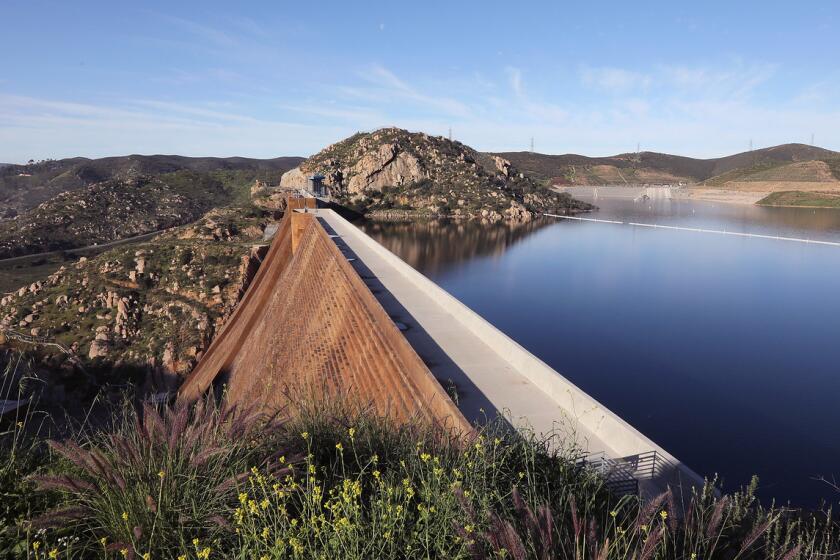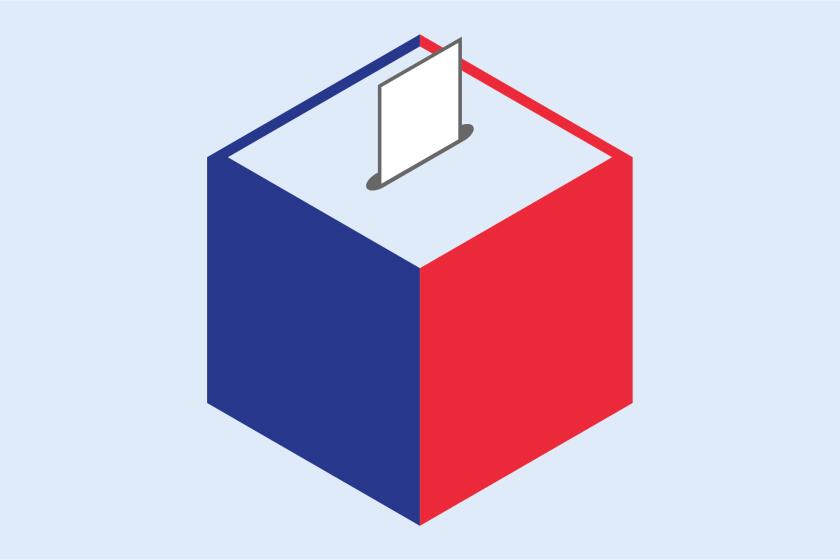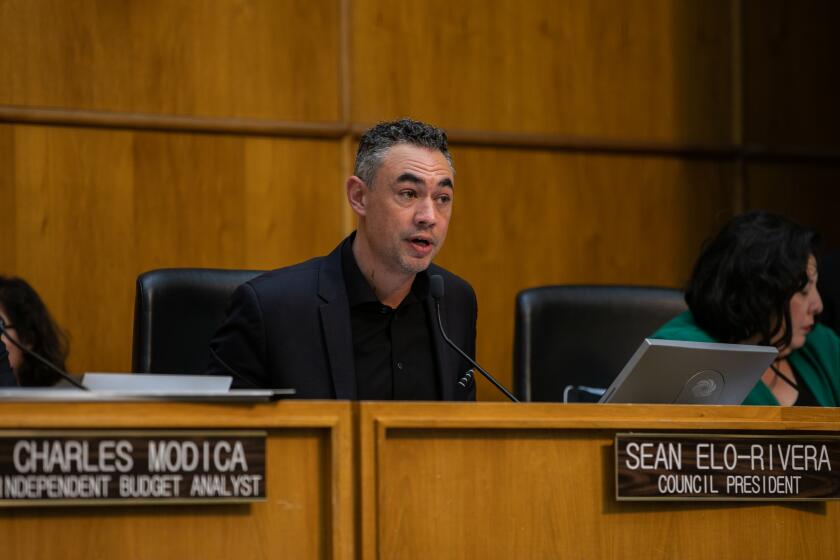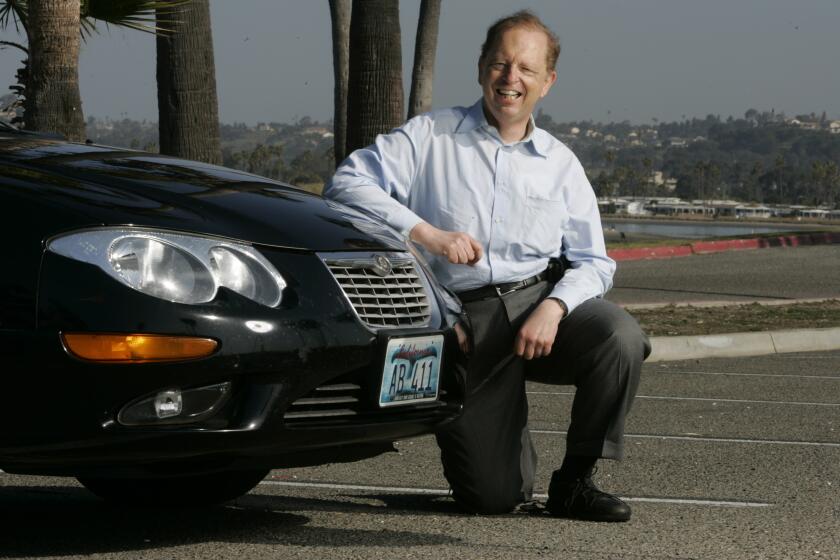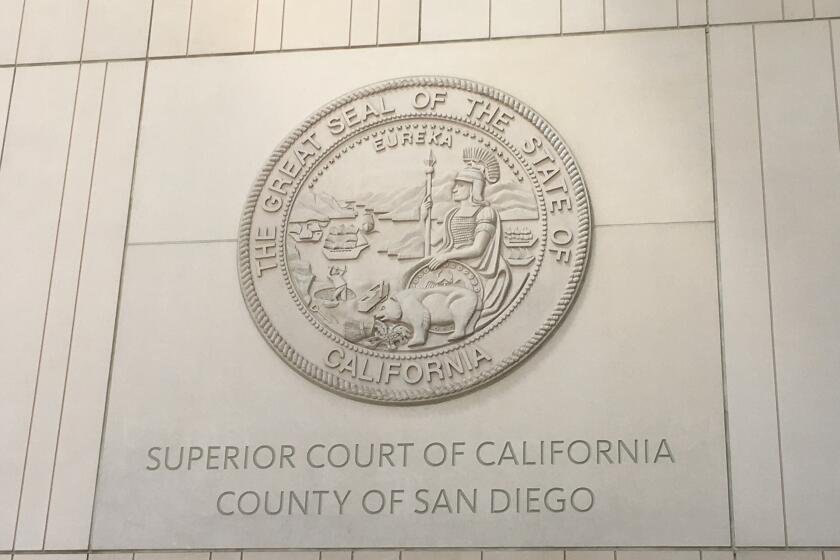Ballot measures could mean millions for San Diego
San Diego could get a new annual revenue stream of roughly $20 million to $60 million if voters approve a recreational marijuana tax on the November ballot, the city’s independent budget analyst says.
A separate ballot measure wouldn’t generate new revenue but would yield roughly $1.4 billion for regional parks by extending a policy that directs Mission Bay Park lease revenue to parks upgrades, the budget analyst says.
RELATED: Millions proposed for San Diego parks upgrades
The two new reports from the analyst are among 12 she released on Monday – one report for each city measure that appears on the Nov. 8 ballot.
The reports will appear in voter guides, which are sometimes called sample ballots, mailed to all registered voters in the city. Language in the reports could be altered by a judge if formal protests are filed in the next nine days.
Five of the 12 ballot propositions – Measures E, F, G, L and M – would have either a negligible impact on city finances or no impact at all, said the analyst, Andrea Tevlin.
Measure C, the Chargers proposed hotel tax hike for a combined stadium and convention center annex, is sound financially regarding revenue projections but could be underestimating costs of the project, Tevlin said Monday.
RELATED:Chargers measure fiscally sound — if estimates are accurate
Measure D, an alternative hotel tax increase called the Citizens’ Plan, would generate somewhere between $18 million and $98 million annually with no financial risk to city taxpayers, Tevlin said.
Measure N, the proposed recreational marijuana tax, could be a windfall for the city depending on a variety of factors, Tevlin says.
First, a state measure called Proposition 64 must also get approved by a majority of California voters on Nov. 8 or San Diego’s local measure is null and void.

Proposition 64, a measure that would legalize marijuana for adult recreational use, has qualified for the California ballot.
Other variables include how many recreational marijuana dispensaries the city approves, how quickly they open and how the industry and pricing of recreational marijuana evolves overall, Tevlin says.
San Diego has approved 14 medical marijuana dispensaries since deciding to allow such businesses in 2014, but only eight have opened. Medical marijuana dispensaries would be exempt from the new local tax.
Using Denver as a model because recreational marijuana is legal there, Tevlin estimates San Diego would collect $22 million a year when the tax first takes effect at 5 percent.
When the tax would rise to 8 percent in July 2019, the city’s annual revenue would increase to $35 million.
And if the City Council were to use its discretion under the ballot measure to increase the tax to 15 percent, annual revenue would be roughly $66 million.
Some of the revenue would pay for increased costs of regulating recreational marijuana dispensaries, deliveries and cultivation.
Tevlin projects those costs to be about $650,000 per year based on estimates from the city treasurer that six employees would need to be hired.
But she stressed that both revenue and costs are difficult to project with so many variables.
The revenue from the city tax would go into the city’s operating budget, or general fund, which pays for police, firefighters, infrastructure, parks, libraries and other core city services.
Tevlin says the estimates based on Denver, while illustrative, could be off the mark.
She essentially took the $220 million Denver’s 128 retail marijuana outlets generated in gross sales in 2015, doubled it because San Diego has twice the population, and then multiplied by San Diego’s proposed 5 percent tax.
On Measure J, the parks revenue proposal, Tevlin said an additional $1.4 billion would be available for upgrades to regional parks based on her rough estimates of future lease revenue in Mission Bay Park.
The measure would postpone from 2039 to 2069 the expiration of a 2008 ballot measure directing that lease revenue to improvements in that park and some other large parks.
City officials say the extension would allow immediate funding for major renovation projects, many in Balboa Park, by creating a revenue stream that would allow the sale of bonds to generate millions in immediate capital.
Tevlin says Measure J would also clarify how parks projects get prioritized and shift the 2008 measure’s funding formula to provide more money to regional parks other than Mission Bay.
They include Balboa Park, Chollas Lake Park, Mission Trails Regional Park, Otay River Valley Park, Presidio Park, San Diego River Park and coastal beaches.
On Measure K, which would require runoffs in November general elections even if one candidate gets more than 50 percent in a primary, the city would see an increase in election costs. Tevlin says if Measure K had been in effect during the 2008, 2010, 2012 and 2014 election cycles, costs would have increased between $30,000 and $260,000 depending on the election.
On Measure I, which would allow San Diego High School to remain in Balboa Park, Tevlin says no immediate financial impact is expected. But she says there may be future negotiations that would yield rent revenue for the city.
On Measure H, which would amend San Diego’s purchasing and contracting rules, the city would save $54,000 in advertising costs.

